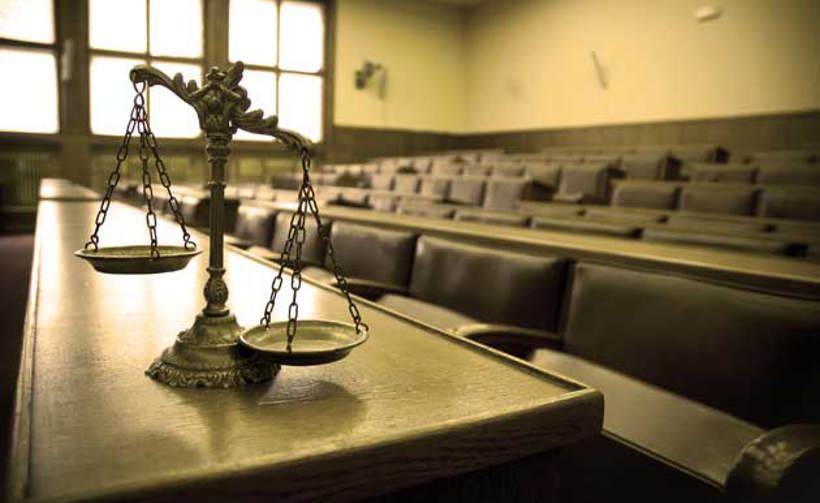
The recent Outer House judgement of Johnstone v NHS Grampian [2019] CSOH 90 is the latest post-Montgomery consent case decided in Scotland and provides a solemn reminder for pursuers of the significant difference which contemporary clinical notes can make in deciding a case.
Facts
The Pursuer, Mr Johnstone, underwent transsphenoidal surgery in Aberdeen Royal Infirmary in January 2011, to treat a pituitary tumour which was believed to be responsible for excreting excessive levels of growth hormone, which had been treated conservatively for many years previously. Unfortunately, Mr Johnstone suffered from post-operative Cerebral Spinal Fluid (“CSF”) leakage and meningitis, as a result of the surgery, and required another operation to repair the damage. He requires to take medication for the rest of his life.
Mr Johnstone raised clinical negligence proceedings against NHS Grampian, arguing that the surgeons he met in the lead up to the surgery, Professor Bevan and Mr Kamel, failed in their duty of care to him by failing to explain the material risks involved in the surgery, to provide more information on the alternative options of treatment by way radiosurgery in Sheffield or having no surgical treatment at all and the risks attached to these. He also argued that he had not been properly consented on the morning of the surgery by a Mr Bodkin.
Decision
Lord Glennie considered that each party’s witnesses could not be said to have been inherently more reliable and/or credible over the others, so it was necessary to decide the case by drawing inferences from the documentary evidence presented during the trial.
He found that a note, dictated by Mr Kamel, soon after the meeting with the Pursuer and his wife in September 2010, to be a fair and accurate summary of their discussions. It outlined, among other things, that the options of surgery and radiosurgery, their respective pros and cons, and the risks of surgery, including the risk of post-operative CSF leakage, meningitis and future surgery, were explained. The Pursuer and his wife denied that these points were discussed and felt that the option of radiosurgery was removed from the table by Prof. Bevan and Mr Kamel without consulting them.
However, Lord Glennie noted that Mr Johnstone’s letter of complaint (sent in July 2013) indicated that he had made a positive decision to have surgery over radiosurgery and that his criticism of a lack of information on the alternative treatments was subsidiary, compared to other criticisms. Furthermore, one of the Pursuer’s experts recorded Mr Johnstone as recalling Mr Kamel speaking to him about the risks of post-operative infection. Lord Glennie considered it unlikely that Mr Kamel would discuss this without also outlining the inherent risks of the operation itself.
Lord Glennie considered that the option to do nothing was not a reasonable option which required to be discussed further than it was. He also rejected the argument that a reasonable person would automatically opt for radiosurgery over surgery if advised of the respective risks.
With regard to the consent process on the morning of the operation, Lord Glennie accepted Mr Bodkin’s evidence that he more or less followed a standard practice which he used for consenting patients and that the Pursuer’s evidence did not demonstrate the contrary.
Overall, Lord Glennie held that Prof. Bevan, Mr Kamel and Mr Bodkin did not breach their duty of care to obtain informed consent from the Pursuer for the surgery. He was satisfied that all material risks, reasonable alternatives and the risks attached to these had been sufficiently explained. Even if there was a breach of duty, the evidence showed that the Pursuer would nonetheless have opted for surgery and so would likely have suffered the same injuries.
Comments
The decision is a stark reminder for pursuers that judges may draw inferences from contemporary documentary evidence and a doctor’s “standard practice” in order to decide cases. Pursuers are at a disadvantage here in that a patient would not ordinarily record what was discussed during a consultation, but a doctor will do.
However, this is not to say that pursuers are destined to lose. In Andrews v Greater Glasgow Health Board (2019) (in which we represented the pursuer), the judge preferred the oral evidence of the pursuer over the criticised doctor, despite there being documentary evidence which contradicted what the pursuer stated. Likewise, in CXB v North West Anglia NHS Foundation Trust(2019), Judge Gore QC held that there is no general principle that courts should prefer assertions made in clinical records over factual accounts in witness evidence.
The case also solidifies the notion that what a “reasonable option” is will be determined by doctors and not the patient’s views. This provides an added difficulty for pursuers in consent cases because it means that, even if you can prove that you would have opted for another treatment, or none at all, the case may yet fail because your preferred option was not considered a “reasonable” alternative by doctors. Hence, there would be no breach of duty for failing to discuss it further with you. In the writer’s view, this is contrary to the notion of patient autonomy espoused by the UK Supreme Court in Montgomery v North Lanarkshire Health Board and it is hoped that this will change in the future.
Take the next step
- Call us on 0131 226 5151
